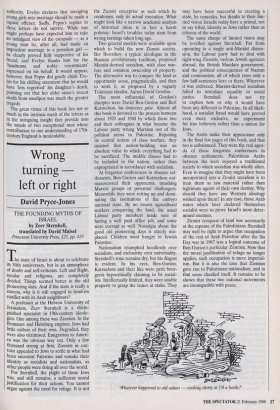An unlikely couple
Anne Somerset
PARTICULAR FRIENDS: THE CORRESPONDENCE OF PEPYS AND EVELYN edited by Guy de la Bedoyere Boydell & Brewer, £25, pp. 352 The correspondence between John Evelyn and Samuel Pepys sounds wonder- fully promising. Unfortunately, both men prove to have been better diarists than letter-writers. Nevertheless, this meticu- lously edited collection affords many reasons to be grateful that, despite the fact that in 1814 Evelyn's descendants were using his old letters to cut out dress pat- terns, a significant number of communica- tions between the two has survived.
In some ways the friendship between Evelyn and Pepys was an unlikely one. Evelyn's background was more privileged, for, as a man of independent means, he was able to cultivate his intellectual and aesthetic tastes from an early age. Apart from his onerous stints overseeing the care of seamen wounded in Charles II's Dutch wars, his participation in public life was minimal. Pepys, in contrast, was a man on the make, who brilliantly served his country as a naval administrator and succeeded in enriching himself in the process.
Their diaries, to which both men owe their immortality, vividly expose their dif- ferences in temperament, the most notable being that Evelyn was a tremendous prig. Typically he fulminates in these letters against the 'pimps, concubines and buf- foons' favoured by Charles II, and deplores the 'open and avowed luxury and profane- ness' of the royal court. Pepys was much more susceptible to the pleasures available to him in Restoration London. Confessing that female beauty held him in a 'strange slavery', he salivated at the sight of Charles II's mistresses, and his diary chronicles with engaging frankness his own extra-marital adventures, progressing from illicit grop- ings to more satisfying sexual encounters. While Evelyn's elevated morals earned him the approval of the Victorians, Pepys nowadays appears not only the more endearing of the two men but also the more impressive.
These letters amply confirm that, what- ever their dissimilarities, Evelyn and Pepys held each other in the highest esteem. They had many tastes in common, sharing a love of music, good food (when Evelyn thanks Pepys for having regaled him with Ortolani, the editor assumes the pair had been discussing Jacobus Ortelanius, but it seems more likely they had been feasting on ortolans and the fine arts). Above all, however, they were drawn together by an insatiable intellectual curiosity. Pepys once described himself as being perpetually 'with child to see any strange thing' and, having recognised Evelyn as a man endowed with `all manner of learning', he repeatedly sought enlightenment from him on a vast range of topics. Evelyn responded with staggering (and at times slightly numbing) erudition. Besides covering matters of obvi- ous interest to an aspiring virtuoso, such as numismatics and portrait engravings, Eve- lyn suggested source materials for Pepys's projected history of English sea-power and drew up a detailed list of the sights Pepys should inspect when in France. Other subjects are decidedly abstruse: Evelyn's disquisition on the role of dogs in war brings forth an anecdote about a conquista- dor's dog who was ordered to kill a woman from the Indies. Cleverly she appeased the animal by addressing him as Sir Dog', whereupon 'the disdainful cur . . . merely pissed on her'.
Political developments and gossip feature only tangentially in the letters. The most gripping sequence dates from 1685, when Evelyn's daughter Elizabeth elopes with a Mr Tippett. Incensed by this unexpected flouting of his paternal authority, Evelyn declares that inveigling young girls into marriage should be made a capital offence. Sadly, Pepys's replies to these letters do not survive. While one might perhaps have expected him to take an indulgent view of the escapade — as a young man he, after all, had made an imprudent marriage to a penniless girl he clearly proved fully supportive of his friend, and Evelyn thanks him for the `handsome and noble resentments' expressed on his behalf. It would appear, however, that Pepys did gently chide Eve- lyn for his chilling statement that he would have 'less regretted' his daughter's death, Pointing out that her elder sister's recent death from smallpox was much the greater tragedy.
The great virtue of this book lies not so much in the intrinsic merit of the letters as in the intriguing insight they provide into the minds of two exceptional men whose contribution to our understanding of 17th- century England is incalculable.



























































 Previous page
Previous page